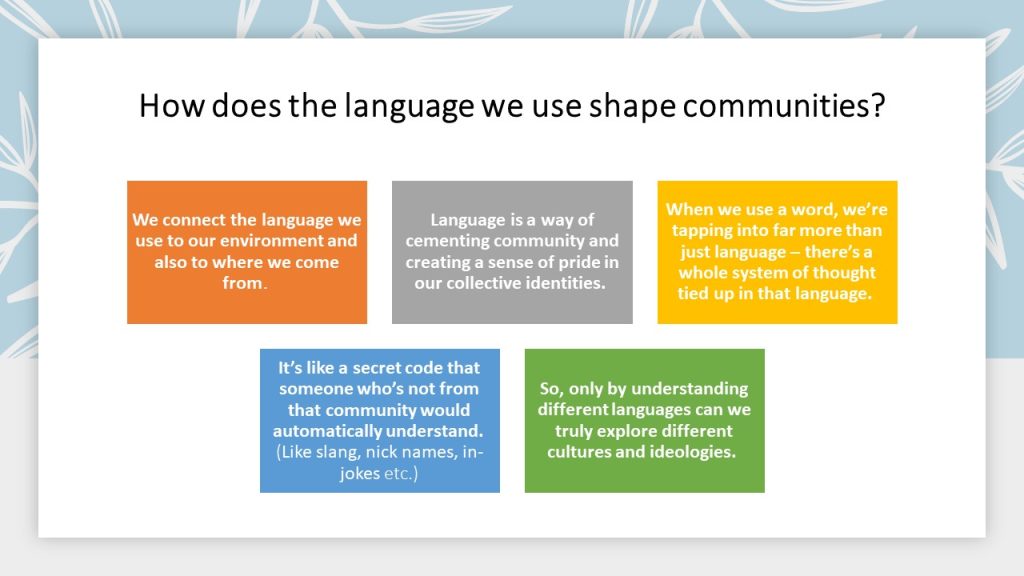We’re delighted to share details of our involvement in a pioneering new languages outreach programme, Think Like a Linguist!
Think Like a Linguist is run by the Translation Exchange at the University of Oxford in partnership with the languages departments at the University of Oxford and the University of Cambridge, literary charity the Stephen Spender Trust, and secondary school Hollingworth Academy in Rochdale.
Think Like a Linguist helps students aged 12-13 to make informed choices about languages at GCSE, through a course of five interactive sessions with their peers, language professionals, university students, and recent languages graduates. Each session focuses on a different aspect of language learning, and enables students to consider the question, What does it mean to think like a linguist? from a unique perspective.

Throughout the programme, the young participants are treated as active linguists. Each session focuses on what the students can already do, and where this could take them. “Thinking like a linguist” is presented as a mindset, rather than a skillset.
Chris Dobbs, Head of Academic Enrichment at Hollingworth Academy and Director of OxNet Youth Scholars at Pembroke College, University of Oxford, commented:
We are delighted to host the project Think Like a Linguist. Engaging pupils in language learning from a variety of perspectives will we believe promote greater cultural awareness, develop a love for language study and help to develop resilience and self-confidence. The contributions made by visiting academics and their former students help to demystify the experience and enhance the value of studying languages at university level.
The pilot programme is running in six schools in the North West of England, hosted by Hollingworth Academy, Rochdale. Careful evaluation of the pilot will produce recommendations on how universities can best support language learners and teachers at schools, and best practice for increasing the uptake of modern foreign languages at GCSE. The partners will build on the evaluation to roll the programme out in areas of the UK where the uptake of languages is very low.

The pilot began with a launch event at Hollingworth Academy, Rochdale in January 2023 and will close with a graduation event at either the University of Oxford or the University of Cambridge in autumn 2023. 30 students from six schools in the North West are involved, all currently in year 8 and studying French or Spanish. Participating students report back to their peers via school assemblies, and parents/guardians are invited to join the launch event and final graduation event.
Six participating schools:
- Hollingworth Academy (Rochdale)
- Newhouse Academy (Rochdale)
- Unsworth High School (Bury)
- Holy Family (Rochdale)
- Royds Hall (Huddersfield)
- St Anne’s (Middleton).


